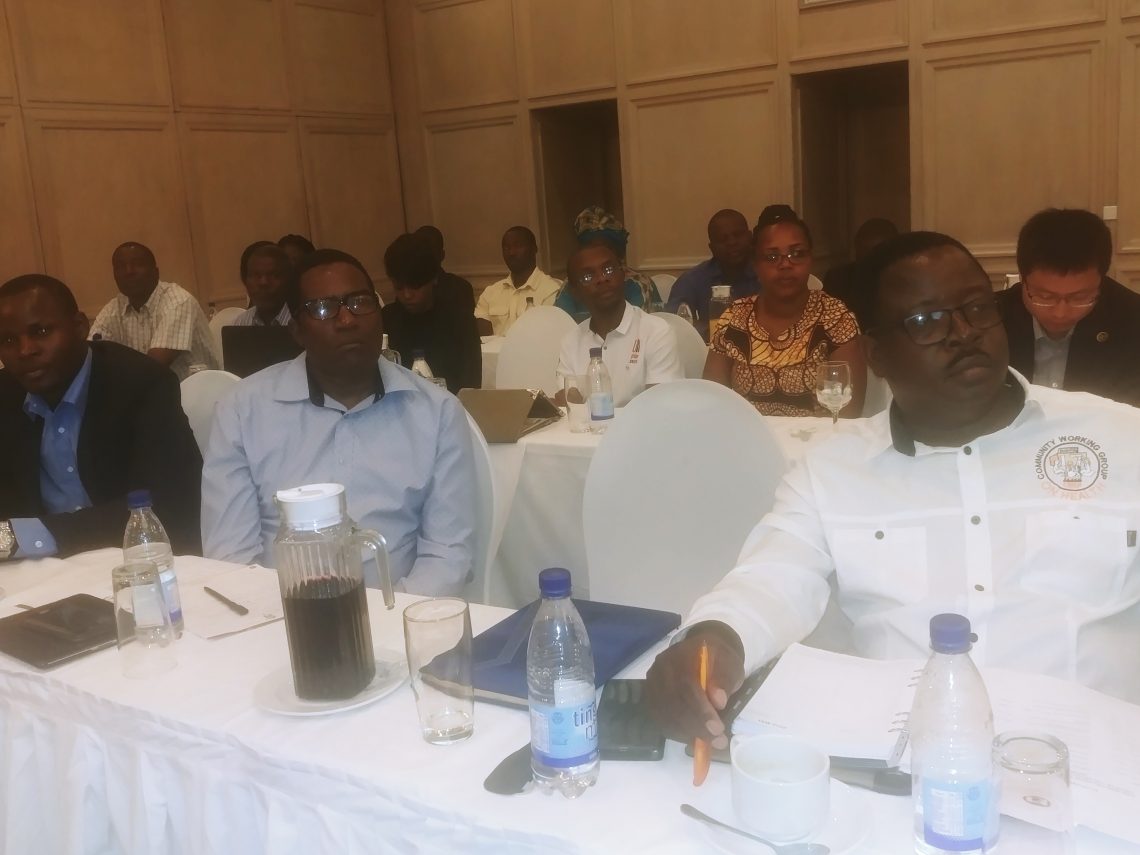By Byron Mutingwende
Social cohesion and unity of purpose among stakeholders is the basis for the attainment of pro-poor, inclusive and sustainable economic growth, a dialogue organised by the Labour and Economic Development Research Institute of Zimbabwe (LEDRIZ) has revealed.
The dialogue that was held on Thursday 27 September 2018 in Harare was held under the theme, “Monetary Policy and Financial Sector Developments.”
An Economist with LEDRIZ, Dr Prosper Chitambara, noted that Zimbabwe’s economic growth improved to an estimated 3.7 per cent in 2017 up from 0.6 per cent in 2016.
“This was underpinned by significant performance in agriculture, mining and electricity and water. The economy continues to face structural challenges arising from high levels of informality, weak domestic demand, high public debt, lack of confidence (and trust) and institutional weaknesses.
“The country is experiencing a binding liquidity crisis. The liquidity crisis is a manifestation of structural deficiencies and distortions prevailing in the economy,” Dr Chitambara said.
He said past macroeconomic policies lacked a consistent pro-poor and inclusive framework and have failed to deliver on the social front as indicated by the high and worsening levels of unemployment, poverty and inequality.
“Moreover, the current macroeconomic policy framework in particular the fiscal policy remains highly consumption oriented leaving very little fiscal space for capital and social expenditures.”
Government came up with a national development plan the Zimbabwe Agenda for Sustainable Socio Economic Transformation (ZIMASSET) in July 2013. In September 2016 the Government unveiled the Interim Poverty Reduction Strategy Paper (IPRSP).
Chitambara said the development and macroeconomic policy framework must be strongly aligned with constitutional imperatives such that the bulk of resources are dedicated towards the realization of constitutionally mandated people’s rights.
“A developmental welfare state must be able to identify and pick winners and champions and support them through industrial policy. Zimbabwe can also learn from its past when it strategically intervened in various ways to nurture and promote the industrial sector,” the Economist said.
Dr. Nicholas Masiyandima, the Principal Economist (Economic Research and Policy Enhancement) of the Reserve Bank of Zimbabwe (RBZ), said reserve money grew by 28.96% from $1.95bn to $2.51bn between June 2017 and June 2018. The components of reserve money comprised RTGS balances of 84.0% with currency issued standing at15.5%.
The increase in RTGS balances was partially offset by an improved uptake of Savings Bond by financial institutions.
“Fiscal consolidation will help in lowering excessive monetary growth and will release resources to productive sectors. Alternatively, deficit can be lowered through growing the economy but only on condition of macroeconomic reforms. The RBZ’s utilisation of offshore lines of credit to create domestic assets (lending to domestic economic agents) without accompanying increase in economic activity, export growth and foreign reserves accumulation is not sustainable in the medium to long run,” Dr Masiyamndima said.
The economy is facing a plethora of challenges that include fiscal deficits; external Imbalances; confidence deficit; speculation, corruption and indiscipline; low production and high imports; low industry capacity; and low competitiveness.
These symptoms manifest themselves in foreign exchange and cash shortages; high money supply (monetisation of fiscal deficits); parallel market premiums, rates and activities; multiple pricing; rising inflation, and informalisation.
The foreign exchange management measures by the central bank include the RBZ Nostro Stabilisation; and Savings Bonds that promote savings culture and mop up excess RTGS balances.
The RBZ foreign currency managements measures helped in stabilising foreign exchange premiums. The central bank’s Export Incentive Schemes helped in improving external sector competitiveness and performance. The Bank also lowered lending ratesand charges on the use of plastic money. It is also the Lender of Last Report through the Afreximbank Trade Debt backed Securities (Aftrades) facility of US$200m.
The Community Working Group on Health (CWGH) Chief Executive Officer, Itai Rusike, said while government policies on essential drugs and on equity in health have significantly widened treatment access in Zimbabwe, there is evidence that drug access has fallen in recent years, and that drug availability is falling most sharply at the clinic services that form the frontline of the health care system with the community.
“This represents an unfair cost burden on poor communities, but also opens the way for the growth of private unregulated drug markets. Devaluation of the Bond Notes and consequent cost inflation have increased drug costs to the fiscus, services and consumers. Foreign currency shortages undermine drug purchases,” Rusike said.
He said since drug production is limited in Zimbabwe, there iss need to support and capacitate the local pharmaceutical industry especially from the home grown funds such as the Health Levy and the AIDS Levy by purchasing some of essential medicines from the local pharmaceutical companies thereby saving the scarce foreign currency.
“The Reserve Bank of Zimbabwe should prioritise allocation of foreign currency to the procurement of drugs in order to avoid patients with chronic conditions failing to access drugs and thereby risking developing drug resistant conditions that may be costly to treat and manage,” Rusike added.






